Pearl Farming In Indonesia
- jayneng731
- Nov 5, 2020
- 2 min read
One of the highlights of my time in the Jewelry Trade is being able to travel to gem sources. These are privately owned mines and farms that most people would never get to experience. And I was so fortunate to be able share some of it!

This trip happened last year in late 2019, but it has been one of the highlights of my career so I thought I should share it here in my new blog.
Sometime in October 2019, I made the trip to Bali Indonesia, in the northern side of the island called Menjangan. In this coast, South Sea Pearl farms operate in the middle of the waters to grow the large yellow or white pearls we commonly see. Just a brief on pearls, these are the common types of pearls you will commonly come across:
Freshwater Pearls, these are small pearls that are commonly dyed in all colours. They are mostly grown in China in freshwater mollusks. Each of these mollusks produce an average of 40 pears. Due to large supply, these are the most inexpensive mass-market pearls that you will see around.
South Sea Pearls are grown in the coasts of Philippines, Australia and Indonesia. Pearls usually grow up to 25mm in dimeter, with some even reaching 30mm. These pearls are pricey as they take time to grow and each mollusk can only produce 1 pearl at a time.
Tahitian Pearls are very similar to South Sea Pearls except that they are grown in Polynesia and produces black/grey pearls.
Akoya Pearls, are small in size but are known for their incredibly sharp lustre and pink hues. They are grown in Japan where it was first cultivated by #MIKIMOTO. Each mollusk fits about 3-4 pearls and they are relatively expensive.
Rare Pearls includes the Conch, Clam, Melo etc.
In my trip to the South Sea Pearl farm, we saw the process of harvesting and growing these pearls. A detailed recount of my journey can be found on Moltenore's site here. Nevertheless, here are some snippets of my adventure.
In a nutshell, the order of oyster growth:
Pearl Nursery where oysters are grown and can only be seen under a microscope when they are a few days old
Grown in tanks for the next few months where they are fed an algae mixture. Every speck of dust in the tank is a growing oyster
They are then moved into the waters in nets
After a year, they are taken up to be cleaned of barnacles from their shells
Later they are then nucleated with their first shell bead and tissue to incite the pearl growing process
Two years later, the oysters are harvested for their pearls and a new shell bead is inserted to grow another pearl
Oysters can be harvested for a few rounds before they reach their shelf life. If so, they are then cook and cleaned where their shells are sold
Here's me harvesting a pearl out of the oyster!





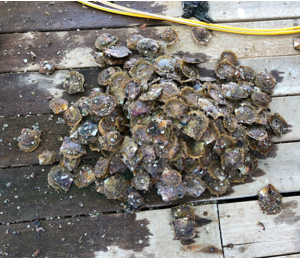











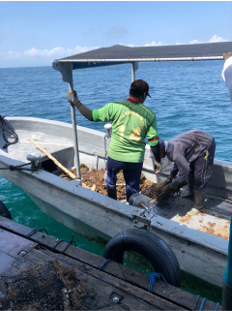
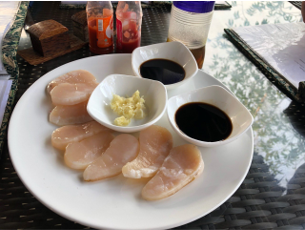

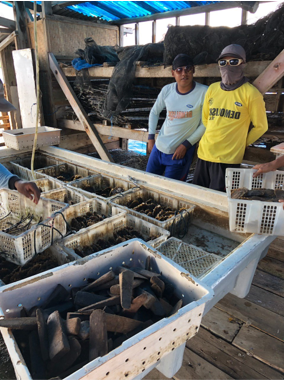
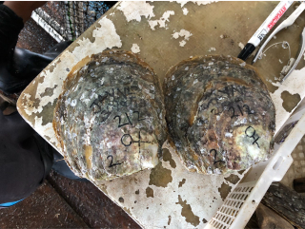




Opmerkingen